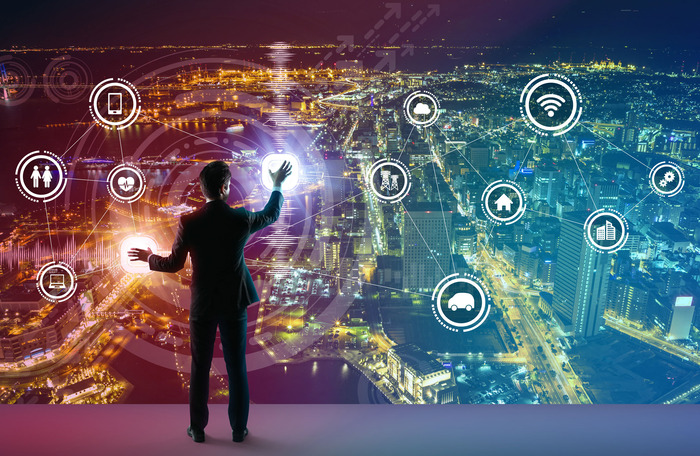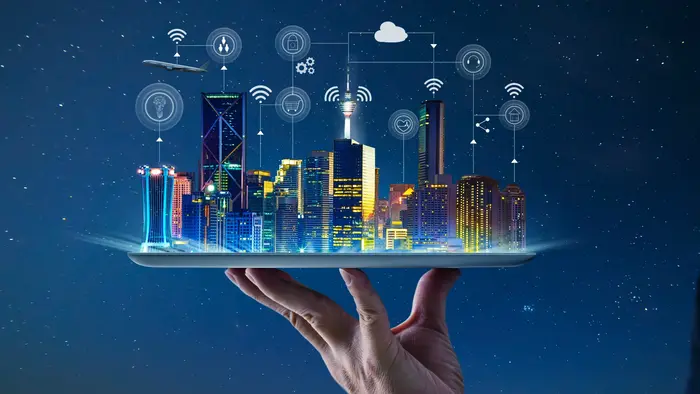Technological breakthroughs are revolutionizing our daily lives and work environments in our dynamic global landscape. Organizations worldwide are strategically leveraging the latest advancements to secure a competitive edge.
Business leaders are increasingly realizing the pivotal role of embracing technological advancements. The integration of cutting-edge technology boosts efficiency and productivity, yields cost savings, and enhances decision-making through sophisticated data analytics. Moreover, technology facilitates broader market reach and elevates the overall customer experience.
Numerous industries have undergone remarkable transformations propelled by technological advancements. Here, we delve into five sectors that showcase the profound impact of technology on their landscapes.
-
Restaurant Business: A Digital Feast
The restaurant industry is experiencing a digital revolution by adopting several technologies to enhance customer experience and operational efficiency. In many ways, the COVID-19 pandemic accelerated technology adoption in the restaurant business. Many establishments turned to online ordering, contactless payments, and digital menus to adapt to safety measures and changing customer preferences during the pandemic.
It’s been a few years since the pandemic, and restaurants are further leveraging the power of technology with several approaches. Some restaurants are already exploring using Artificial Intelligence (AI) in taking orders, and initial tests have yielded positive results. Mobile apps are used for delivery and reservations, while digital menus and contactless payment options have become mainstays in the sector.
Even technology is changing how restaurants approach cleaning, an essential component of their business. State-of-the-art cleaning equipment and techniques redefine efficiency, ensuring that every space customers touch gleams with a new standard of hygiene.
According to one of the popular restaurant cleaning services in Phoenix, Arizona: “Using advanced cleaning methods isn’t just a matter of staying current; it’s a strategic investment in the overall success and reputation of a restaurant in today’s competitive and hygiene-conscious market. Innovations like UV sanitization, electrostatic sprayers, and biodegradable cleaning products are helping restaurants achieve high standards of hygiene while reducing environmental impacts.”
-
Healthcare: Telemedicine and Beyond
Health is an important aspect of our lives, and the healthcare industry is always looking for advanced technologies that can improve patient outcomes, enhance efficiency, and reduce costs. One of the technological advancements reshaping healthcare is AI, which is improving diagnostics by analyzing medical images like X-rays and MRIs with high precision.
AI algorithms can also analyze patient data to tailor treatment plans based on individual genetic makeup, lifestyle, and medical history for more personalized care. The process of drug discovery is becoming more efficient thanks to AI. Researchers now use AI to analyze biological data, identify potential drug candidates, and optimize clinical trial processes.
Telemedicine is another technological advancement reshaping healthcare. While some people may think telemedicine is a new concept, the truth is that it has existed for several decades. However, the pandemic increased both its popularity and adoption.
Enhanced video conferencing and remote health monitoring are making telemedicine more effective. Other technological advancements in healthcare include robotics, wearable technology, electronic health records, health marketplaces, etc.
-
Education: EdTech’s Impact on Learning
Gone are the days when education was confined within the four walls of the classroom. Advancements in technology have resulted in Edtech, short for “educational technology.” Edtech refers to the use of technology, tools, and resources to enhance and support education.
Virtual classrooms are breaking down geographical barriers and providing opportunities for learners worldwide. Advanced video conferencing tools allow students and teachers to interact in real-time through video conferencing, chat, and audio. Educators can present slides, documents, or demonstrations, making learning easier for students. Virtual whiteboards also allow educators to share content, write, draw, and explain concepts in real-time, enhancing the interactive learning experience.
The rise of online learning platforms like Coursera, LinkedIn Learning, Udemy, Khan Academy, etc., make education more accessible globally. People can learn anything from academy subjects to professional courses and personal interests on these platforms remotely and at their own convenience,
Gamification and Augmented Reality (AR) are creating an educational atmosphere that is enjoyable, engaging, and highly effective. AR allows learners to interact with virtual elements in their physical surroundings and enables immersive, hands-on experiences by bringing abstract concepts to life. Gamification, on the other hand, incorporates game elements, such as points, badges, and rewards, into the learning process. This engages learners by making educational activities more enjoyable and competitive.
-
Manufacturing: Industry 4.0’s Rise
The manufacturing industry is embracing Industry 4.0, also referred to as the fourth industrial revolution. Industry 4.0’s peculiar feature is the integration of digital technologies into various aspects of industrial processes to reduce costs, improve efficiency, and optimize production processes.
AI is helping factories minimize downtown and reduce costs thanks to predictive maintenance. By analyzing data from sensors and pieces of machinery, AI algorithms can predict when they are likely to fail, enabling proactive maintenance.
Quality control is becoming more effective and efficient as industries use AI-powered vision systems to inspect products. These systems can quickly and accurately inspect products for defects, ensuring high-quality manufacturing output and reducing the need for manual inspection.
Robotics and automation offer various advantages that enhance efficiency, precision, and productivity. Repetitive tasks in assembly lines can be automated to increase speed, accuracy, and consistency in producing goods. Robots can be employed for lifting, moving, and transporting materials within manufacturing facilities, reducing manual labor, and improving logistics efficiency.
-
Finance: Fintech’s Finely Tuned Future
Finance is transforming digitally with the rise of fintech (financial technology). Digital wallets, online banking, payment apps, and cryptocurrency are transforming how we manage money and make payments. Blockchain technology ensures secure and transparent transactions, with cryptocurrencies like Bitcoin and Ethereum gaining prominence.
The financial sector has implemented AI with astonishing success. Fraud detection, risk assessment, and algorithm trading are areas where AI has been deployed to great success. Robo-advisors, powered by AI-driven algorithms, can provide personalized financial advice.
Contactless payments represent a significant technological advancement in finance, offering a convenient and secure way to make transactions. Payments are as easy as tapping your card, mobile phone, or other devices on compatible payment terminals. The use of near-field communication (NFC) technology makes contactless payments secure as transaction data is encrypted, reducing the risk of fraud.
Conclusion
Technological innovations are reshaping the landscapes of various industries, ushering in unprecedented transformations and opportunities. Across sectors such as the restaurant business, healthcare, education, manufacturing, and finance, organizations strategically leverage cutting-edge technologies to stay competitive and enhance their operations.
This ongoing integration of technology improves efficiency, productivity, and decision-making and opens up new possibilities for innovation and growth. As we navigate this era of rapid technological change, the industries that successfully embrace and adapt to these advancements are poised to thrive in the evolving global landscape.


